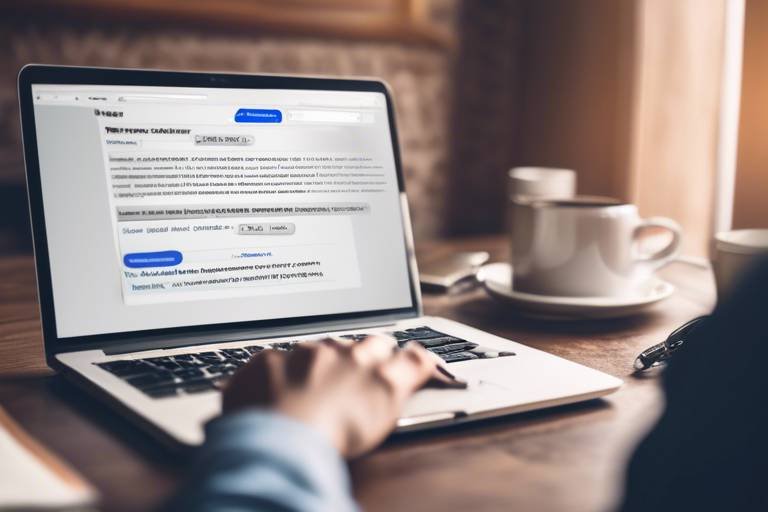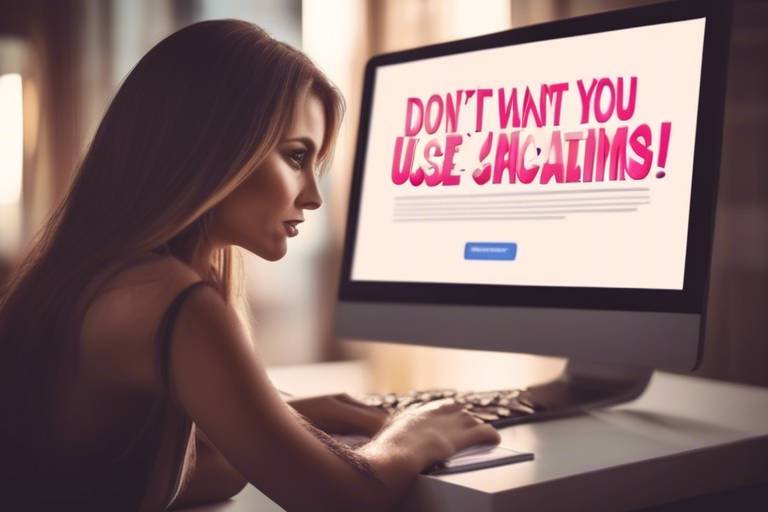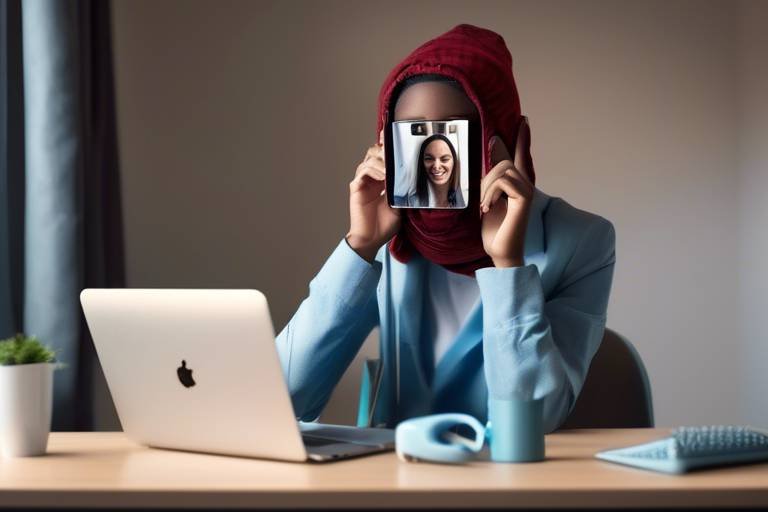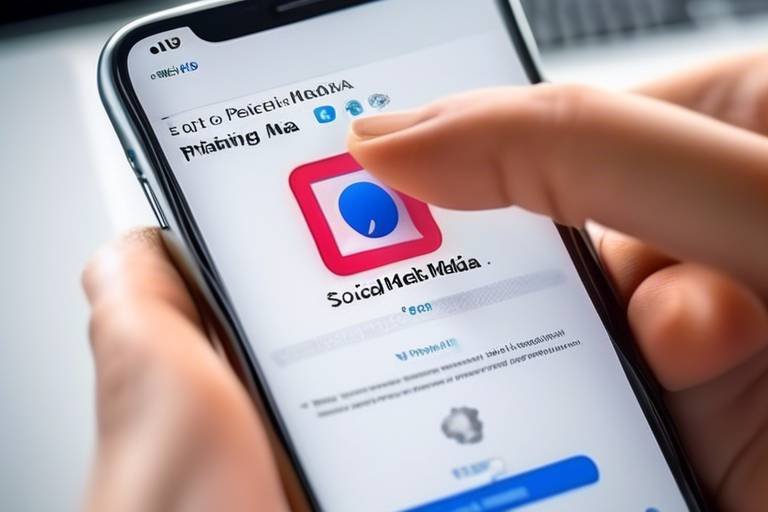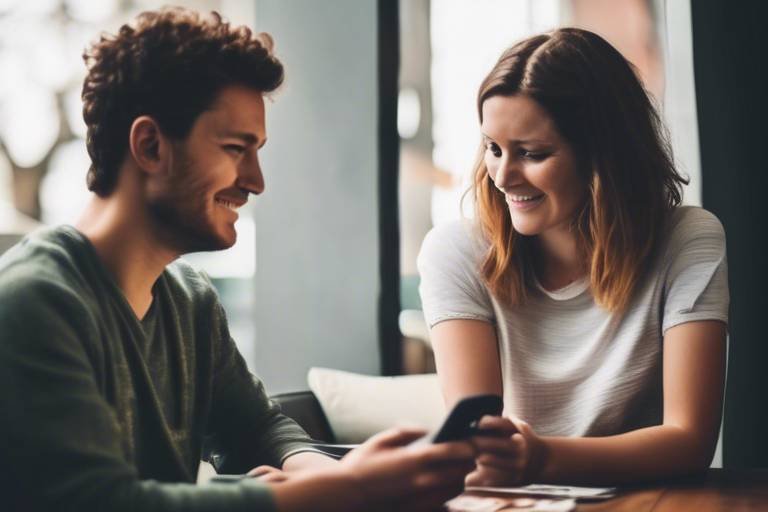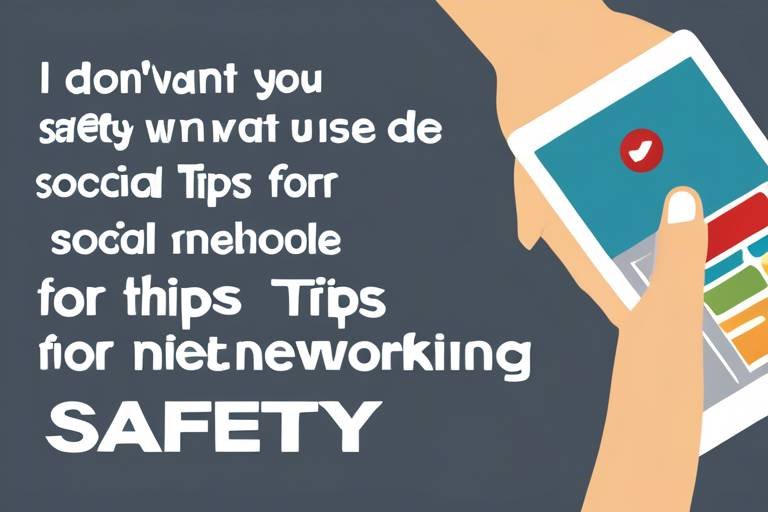Is Social Media Fuelling Your Anxiety?
In today's digital age, social media is as ubiquitous as the air we breathe. It connects us, entertains us, and keeps us informed. However, have you ever stopped to think about the dark side of this connectivity? For many, social media serves as a double-edged sword, providing a platform for interaction while simultaneously fueling feelings of anxiety and inadequacy. It’s a bit like being at a party where everyone seems to be having the time of their lives, and you’re left wondering why you feel so alone in a crowd. The constant barrage of curated lives can lead to a sense of disconnection and heightened anxiety.
As we scroll through our feeds, we’re bombarded with images of seemingly perfect lives. This can create a nagging feeling that we’re missing out or that our lives don’t measure up. It’s easy to fall into the trap of comparing our everyday reality to someone else’s highlight reel. This phenomenon, often referred to as social comparison, can lead to feelings of inadequacy and anxiety. But, it’s not just about the content we consume; it’s also about how we interact with it. The pressure to respond quickly, to be liked, and to engage can become overwhelming.
So, is social media really fueling our anxiety? The short answer is yes, it can. The longer answer is that it’s a complex relationship, one that varies from person to person. For some, social media is a source of support and connection, while for others, it becomes a breeding ground for self-doubt and anxiety. It’s crucial to understand how your online habits affect your mental health. By recognizing the signs of social media-induced anxiety, you can take control of your digital experience and create a healthier relationship with technology.
As we delve deeper into this topic, we’ll explore the various factors that contribute to anxiety related to social media, such as the fear of missing out (FOMO), cyberbullying, and the impact of social comparison. Each of these elements plays a significant role in shaping our online experience and can lead to detrimental effects on mental health. But don’t worry, we won’t just leave you hanging with the problems. We’ll also discuss effective strategies for managing social media anxiety, including setting boundaries, digital detox techniques, and the incorporation of mindfulness practices.
- Can social media really cause anxiety? Yes, excessive use of social media can lead to feelings of anxiety, especially when users compare themselves to others or experience cyberbullying.
- What is FOMO? FOMO, or the fear of missing out, is the anxiety that arises from the belief that others are having more fun or living better lives than you are.
- How can I reduce anxiety from social media? Setting boundaries, taking digital detoxes, and practicing mindfulness can significantly help in managing social media-related anxiety.
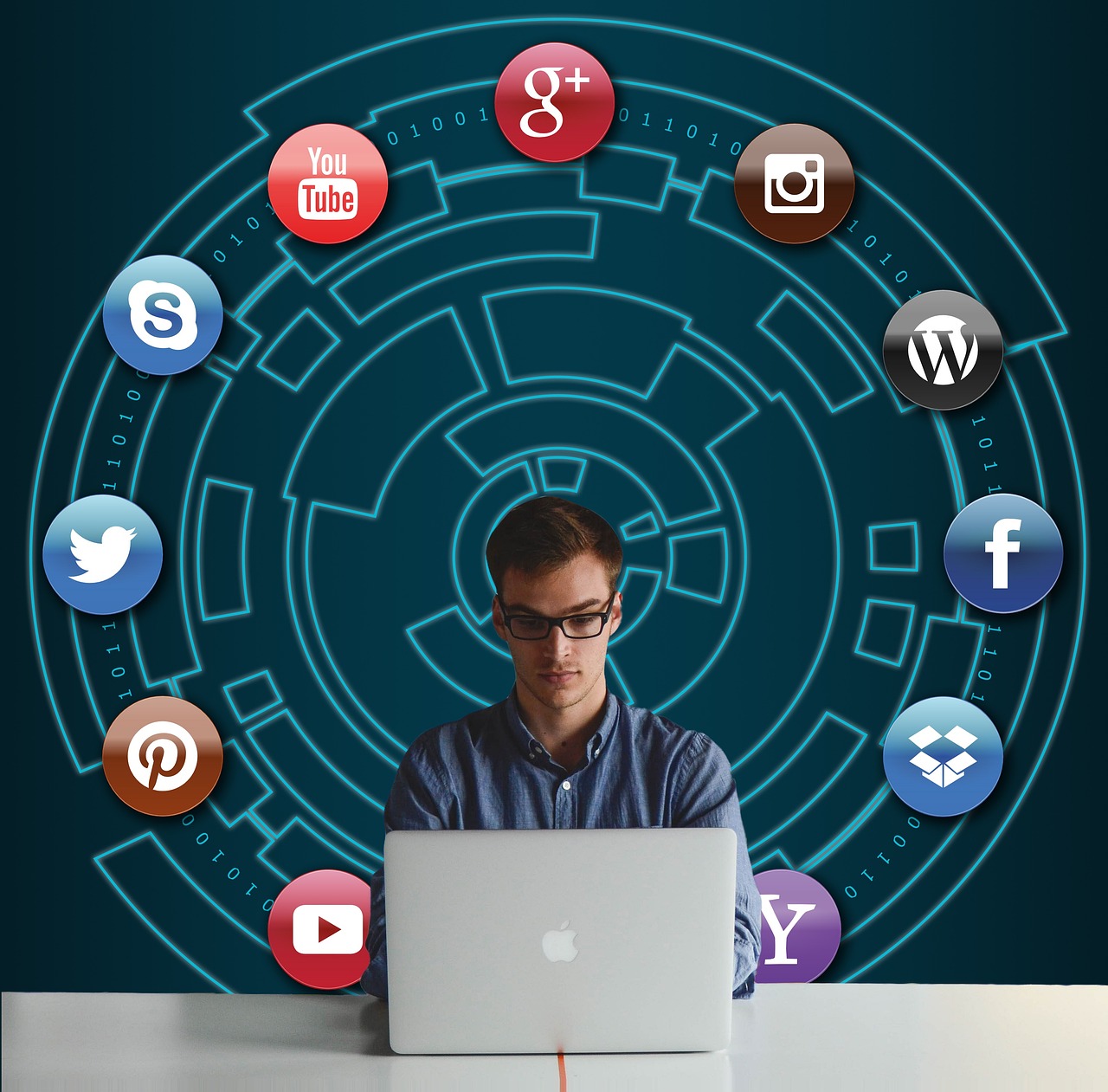
The Impact of Social Media on Mental Health
In today’s digital age, social media has become an integral part of our daily lives. While it offers numerous benefits, such as staying connected with friends and accessing information, it also comes with a darker side that can significantly impact mental health. The constant barrage of notifications, updates, and images can lead to feelings of inadequacy and anxiety. Have you ever found yourself scrolling through your feed, only to feel a wave of negativity wash over you? You're not alone.
Research indicates that prolonged social media use can exacerbate feelings of anxiety and depression. The curated nature of social media means that users often present an idealized version of their lives, which can create an unrealistic standard for others. This phenomenon is particularly evident among younger users who are still developing their self-identity. A study found that individuals who spend more than three hours a day on social media are more likely to report mental health issues compared to those who limit their usage.
Moreover, the impact of social media on mental health can be categorized into several key areas:
- Increased Anxiety: The pressure to maintain a perfect online presence can lead to heightened anxiety. Users may feel compelled to post regularly, respond to comments, and keep up with trends, creating a never-ending cycle of stress.
- Depression: Studies have shown a correlation between heavy social media use and increased feelings of loneliness and depression. The more time spent online, the less time spent engaging in face-to-face interactions, which are crucial for emotional well-being.
- Sleep Disruption: Social media can also interfere with sleep patterns. The blue light emitted from screens and the urge to check notifications before bed can lead to poorer sleep quality, further exacerbating mental health issues.
Understanding these effects is crucial for recognizing the potential risks involved in excessive online engagement. It’s not just about how much time you spend scrolling; it’s about how that time affects your mood and overall mental health. As we delve deeper into this topic, we’ll explore specific causes of anxiety related to social media, including the fear of missing out (FOMO), cyberbullying, and social comparison.
Ultimately, the relationship between social media and mental health is complex and multifaceted. While it can serve as a platform for connection and creativity, it can also become a breeding ground for anxiety and negative self-perception. Recognizing these impacts is the first step towards fostering a healthier relationship with social media.

In today's digital age, social media has become a double-edged sword, offering both connectivity and a myriad of challenges to our mental well-being. The causes of anxiety stemming from social media are complex and multifaceted. One of the primary factors is the pervasive feeling of Fear of Missing Out (FOMO), which can leave individuals feeling inadequate and anxious as they scroll through curated highlights of others' lives. This constant comparison can lead to a cycle of self-doubt and anxiety, as users often find themselves measuring their worth against the seemingly perfect lives displayed on their screens.
Moreover, the rise of cyberbullying has added another layer of anxiety for many social media users. Unlike traditional bullying, which is often confined to physical spaces, cyberbullying can infiltrate the safety of one’s home, making it feel inescapable. Victims of cyberbullying may experience severe emotional distress, leading to long-term mental health issues such as depression and anxiety. The anonymity of the internet can embolden bullies, creating a hostile environment that can leave lasting scars on the victims.
Additionally, the role of social comparison cannot be overlooked. Social media platforms are often designed to showcase the best moments of life, leading users to engage in unhealthy comparisons. When one constantly sees friends or influencers living exciting lives, it can create a false narrative that everyone else is thriving while they are not. This can lead to feelings of inadequacy and low self-esteem, which are significant contributors to anxiety. For many, the pressure to keep up with these unrealistic standards can feel overwhelming, resulting in a constant state of worry and distress.
To sum it up, the causes of anxiety related to social media can be categorized into three main areas:
- Fear of Missing Out (FOMO) - This psychological phenomenon drives individuals to stay connected at all times, fearing they may miss something important.
- Cyberbullying - The emotional toll from online harassment can be profound and long-lasting.
- Social Comparison - The tendency to compare oneself to others can lead to detrimental effects on self-esteem and mental health.
Recognizing these causes is the first step towards mitigating their negative impacts. By understanding how social media can affect our mental health, we can take proactive steps to protect ourselves and create a healthier online environment.
Q: How can I reduce my anxiety related to social media?
A: Start by setting boundaries on your social media usage, taking regular breaks, and focusing on positive interactions. Engaging in mindfulness practices can also help you navigate social media more effectively.
Q: Is it normal to feel anxious when using social media?
A: Yes, many people experience anxiety related to social media due to various factors such as FOMO, cyberbullying, and social comparison. Understanding these feelings is important for managing them.
Q: What are some signs that social media is negatively affecting my mental health?
A: Signs include increased feelings of loneliness, anxiety, or depression after using social media, as well as a constant need to check your accounts or a decline in real-life social interactions.
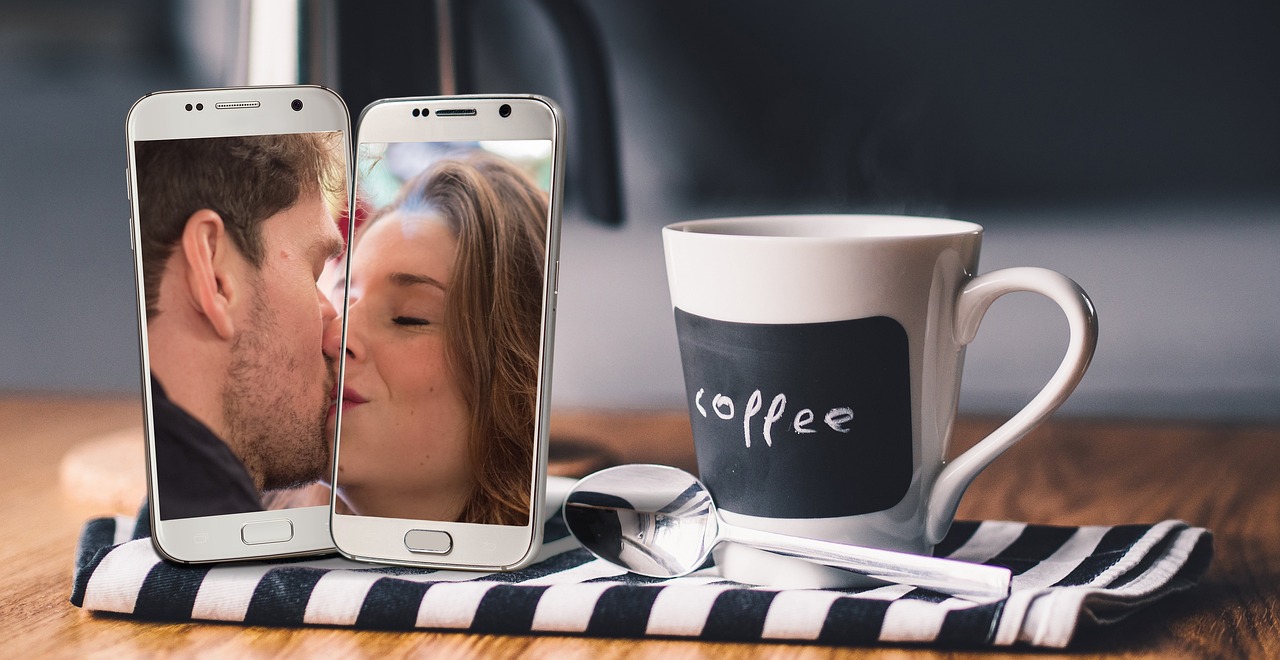
The Fear of Missing Out, commonly known as FOMO, is a phenomenon that has taken the digital age by storm. It’s like a shadow lurking behind every notification, whispering that you’re not doing enough, seeing enough, or experiencing enough. Have you ever found yourself scrolling through Instagram, feeling a pang of envy as you see friends vacationing in exotic locales or attending events you weren’t invited to? This feeling is not just a fleeting moment; it can spiral into a deep-seated anxiety that affects your mental health.
FOMO is particularly potent in the world of social media, where the highlight reels of others’ lives are on constant display. It creates an illusion that everyone else is leading a more exciting life, which can lead to feelings of inadequacy and discontent. The more time you spend on these platforms, the more you might feel like you’re constantly playing catch-up, trying to fill a void that seems to grow larger with each scroll.
Here’s how FOMO typically manifests:
- Constant Checking: You find yourself checking your phone every few minutes, worried that you might miss an important update or event.
- Social Media Overload: You might follow hundreds of accounts, leading to an overwhelming flood of information that can be exhausting to process.
- Comparison Trap: You compare your real life to the curated lives of others, leading to a distorted perception of reality.
Psychologically, FOMO can trigger a cycle of anxiety that’s hard to break. It’s like being on a treadmill that never stops; the more you try to keep up, the more exhausted you become. Studies have shown that individuals experiencing FOMO are more likely to report feelings of anxiety and dissatisfaction with their lives. This is where the importance of awareness comes into play. Recognizing that FOMO is often fueled by social media can empower you to take steps to mitigate its effects.
So, how can you combat this pervasive fear? One effective strategy is to create a more balanced online presence. Consider curating your feed by unfollowing accounts that trigger feelings of inadequacy or anxiety. Instead, surround yourself with positivity and inspiration. Remember, social media is just a snapshot of reality, not the full picture. By shifting your focus from what you’re missing to what you have, you can begin to reclaim your peace of mind.
Ultimately, understanding FOMO is the first step towards managing it. By acknowledging its impact on your mental health, you can take proactive measures to create a healthier relationship with social media. It’s all about finding that sweet spot where you can enjoy the benefits of online connectivity without letting it control your emotions.
- What is FOMO? FOMO stands for the Fear of Missing Out, a feeling of anxiety that arises from the belief that others are having more rewarding experiences than you are.
- How does FOMO affect mental health? FOMO can lead to increased feelings of anxiety, depression, and dissatisfaction with one’s own life due to constant comparison with others.
- How can I reduce FOMO? You can reduce FOMO by curating your social media feed, setting time limits for usage, and focusing on activities that bring you joy offline.

In today's digital landscape, cyberbullying has emerged as a pervasive issue, affecting individuals of all ages. Unlike traditional bullying, which often occurs in physical spaces like schools or playgrounds, cyberbullying can happen anywhere and at any time, making it particularly insidious. Victims may find themselves targeted through social media platforms, messaging apps, or even online gaming environments, leading to a constant state of anxiety and distress. The anonymity that the internet provides can embolden bullies, allowing them to unleash their vitriol without facing immediate consequences. This can create an environment where victims feel trapped, unable to escape the harassment.
The emotional toll of cyberbullying is profound. Victims often experience a range of negative emotions, including shame, fear, and isolation. The constant barrage of negative messages can lead to feelings of worthlessness and hopelessness. In fact, studies have shown that victims of cyberbullying are at a higher risk of developing mental health issues such as anxiety, depression, and in severe cases, suicidal thoughts. The effects can be long-lasting, impacting not only the victim's mental health but also their academic and social life.
To better understand the impact of cyberbullying, consider the following statistics:
| Statistic | Percentage |
|---|---|
| Students who have experienced cyberbullying | 15% |
| Cyberbullying victims who report feeling anxious | 70% |
| Victims who have considered suicide due to cyberbullying | 20% |
These numbers highlight the urgent need for awareness and action. It's essential for parents, educators, and peers to recognize the signs of cyberbullying and to foster an environment where victims feel safe to speak up. Support systems, whether through counseling or peer support groups, can be instrumental in helping victims cope with their experiences. Additionally, promoting digital literacy and empathy among users can help create a more respectful online community.
In conclusion, the effects of cyberbullying are far-reaching and can lead to severe mental health challenges. Awareness and proactive measures are critical in combating this issue, ensuring that individuals can navigate the digital world without fear. As we continue to engage with social media, let’s prioritize kindness and support, making it a safer space for everyone.
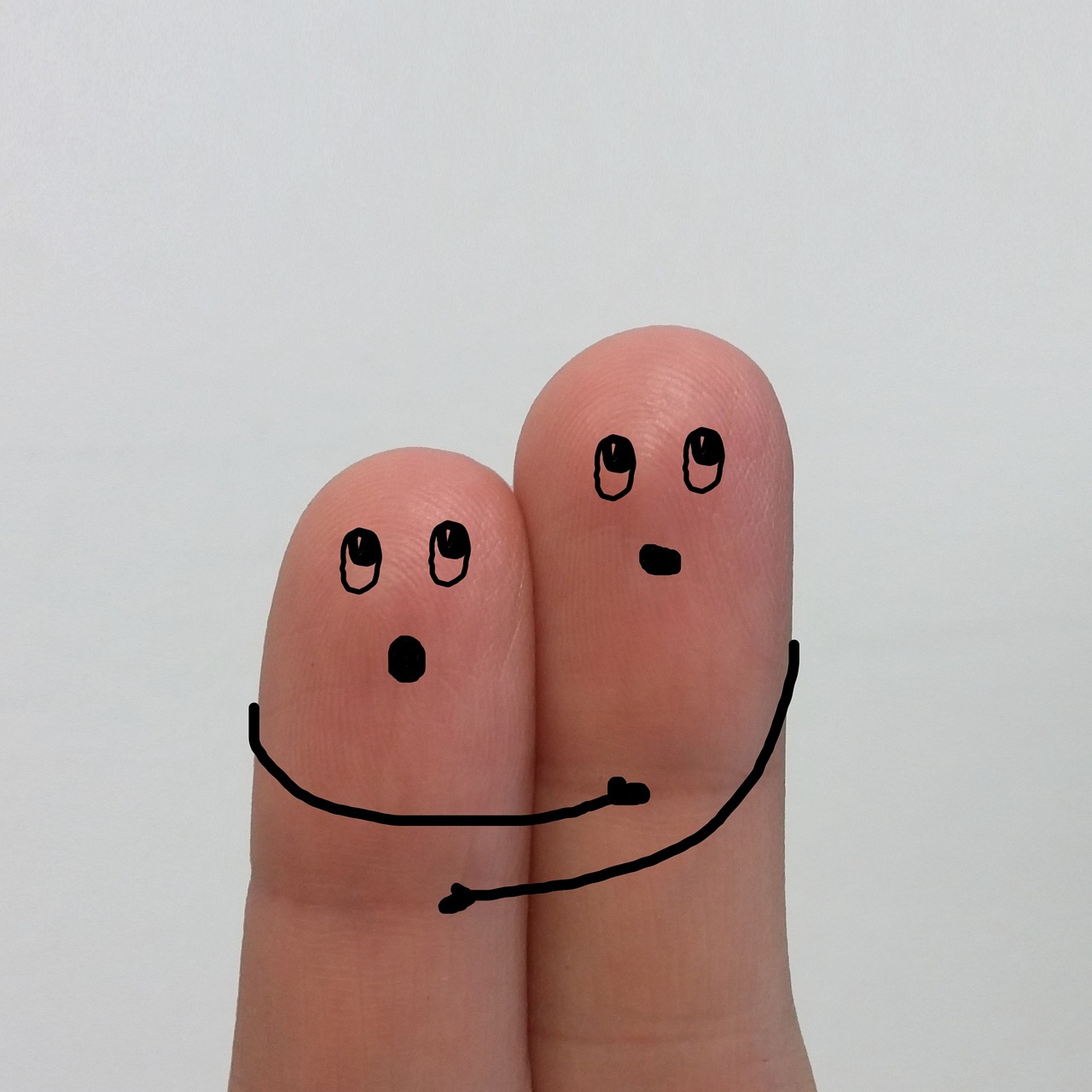
In today's hyper-connected world, social comparison has become an unavoidable part of our online lives. Whether it's scrolling through perfectly curated Instagram feeds or watching TikTok videos showcasing seemingly flawless lifestyles, it's hard not to measure our worth against what we see. This constant comparison can lead to detrimental effects on our mental health, creating a breeding ground for anxiety and low self-esteem. But why does this happen?
First off, our brains are wired to compare ourselves to others; it's a natural instinct. However, social media amplifies this tendency to an alarming degree. We often find ourselves asking questions like, "Why isn't my life as exciting as theirs?" or "What am I doing wrong?" This can create a vicious cycle of negative thinking, where we feel inadequate simply because we don't measure up to the highlight reels of others. The truth is, most of what we see online is a carefully edited version of reality, yet it can still evoke feelings of envy and inadequacy.
Moreover, the psychological effects of social comparison can be profound. Studies have shown that frequent exposure to idealized images and lifestyles can lead to increased feelings of anxiety, depression, and even body image issues. It's as if we are constantly chasing an unattainable standard, which can leave us feeling exhausted and defeated. In fact, a survey conducted by the American Psychological Association found that individuals who engage heavily in social comparison report higher levels of anxiety and lower levels of life satisfaction.
To illustrate this further, consider the following table that outlines some common emotional responses triggered by social comparison:
| Emotional Response | Effect on Mental Health |
|---|---|
| Inadequacy | Increased anxiety and low self-esteem |
| Envy | Feelings of resentment and isolation |
| Disappointment | Reduced life satisfaction and motivation |
So, how can we combat the negative effects of social comparison? One effective strategy is to curate our social media feeds. This means following accounts that promote positivity, authenticity, and self-acceptance rather than those that trigger feelings of inadequacy. Additionally, practicing gratitude can shift our focus from what we lack to what we have, helping to alleviate feelings of envy and anxiety.
In conclusion, while social comparison is a natural human behavior, its effects can be magnified in the realm of social media. By recognizing the impact it has on our mental health, we can take proactive steps to create a more positive online experience for ourselves. Remember, the next time you find yourself scrolling through social media, remind yourself that what you see is often just a snapshot of someone else's life, not the full picture. You are more than your online presence, and your worth is not defined by likes or followers.
- What is social comparison? Social comparison is the act of evaluating oneself in relation to others, often leading to feelings of inadequacy or superiority.
- How does social media contribute to anxiety? Social media can exacerbate anxiety through constant exposure to idealized lifestyles, leading to negative self-evaluation and comparison.
- What can I do to reduce anxiety related to social media? Curating your feed, practicing gratitude, and setting time limits on social media use can help mitigate anxiety.
- Is it normal to feel anxious after using social media? Yes, many individuals experience anxiety after social media use, particularly due to comparison and fear of missing out.

In today's fast-paced digital world, managing anxiety related to social media is more crucial than ever. Many of us find ourselves scrolling through feeds filled with curated lives, perfect selfies, and endless notifications. It's easy to feel overwhelmed and anxious when it seems like everyone else is having a better time than we are. But fear not! There are effective strategies to help you regain control and reduce this anxiety. One of the first steps is to recognize your triggers. Are there certain accounts or types of posts that make you feel anxious? By identifying these, you can take proactive measures to limit your exposure.
Another powerful strategy is to limit your screen time. Set specific time limits for social media use each day. For instance, you might decide to check your feeds only during lunch breaks or after dinner. This not only reduces the time spent online but also helps you focus on real-life interactions. Consider using apps that track your usage and send reminders when you exceed your limits. You might be surprised at how much time you can reclaim!
Additionally, curating your feed can make a world of difference. Follow accounts that inspire and uplift you, and don’t hesitate to unfollow or mute those that trigger negative feelings. Remember, your social media experience should be a source of joy, not anxiety. You can also engage in more meaningful interactions by commenting on posts or messaging friends directly, rather than just scrolling passively. This can foster a sense of community and connection, which is often lost in the noise of social media.
Practicing mindfulness is another excellent way to manage anxiety. Mindfulness can help you stay present and aware of your feelings without judgment. When you feel anxiety creeping in while scrolling, take a moment to pause and breathe deeply. Ask yourself: “How does this make me feel? Is it worth my time?” This simple practice can ground you and help you make more conscious choices about your online interactions.
Lastly, consider scheduling regular digital detoxes. A digital detox doesn’t have to mean going completely offline; it can be as simple as taking a few hours or a day each week to unplug. Use this time to engage in offline activities that bring you joy—whether it’s reading a book, going for a walk, or spending time with loved ones. This break will not only help reduce anxiety but also allow you to reconnect with what truly matters.
In summary, managing social media anxiety is about finding a balance that works for you. By recognizing triggers, limiting screen time, curating your feed, practicing mindfulness, and scheduling digital detoxes, you can create a healthier relationship with social media. Remember, it’s perfectly okay to take a step back and prioritize your mental health.
- How can I identify my social media triggers? Start by paying attention to how you feel after scrolling through certain accounts or types of posts. Keeping a journal can also help you track your emotions and identify patterns.
- What are some good apps to limit screen time? Apps like StayFocusd, Moment, and Forest can help you track and limit your social media usage effectively.
- How often should I take a digital detox? It varies for everyone, but many people find that a short detox once a week or even a few hours each day can significantly help reduce anxiety.
- Can mindfulness really help with social media anxiety? Yes! Mindfulness can help you become more aware of your feelings and reactions, allowing you to approach social media in a more balanced way.
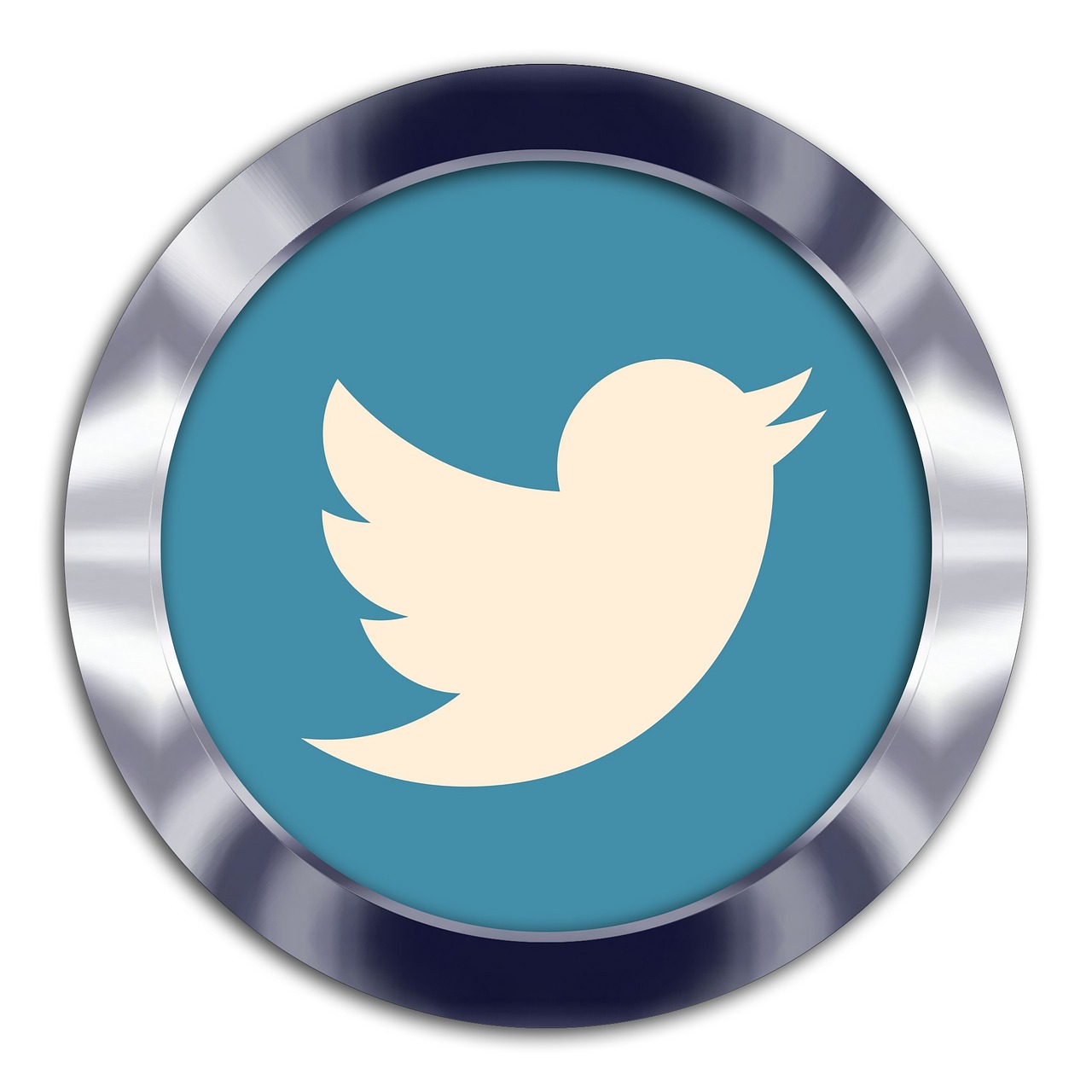
In our hyper-connected world, setting boundaries with social media is not just a suggestion; it's a necessity for maintaining our mental well-being. With notifications pinging constantly and feeds overflowing with content, it’s easy to lose track of time and, more importantly, our peace of mind. Think of social media as a double-edged sword—while it can connect us to friends and family, it can also slice through our tranquility if we’re not careful. So, how do we establish these crucial boundaries? Let’s dive into some practical strategies that can help you reclaim your time and reduce anxiety.
First and foremost, self-awareness is key. Recognizing how social media affects your mood and mental health is the first step toward setting boundaries. Ask yourself: Do I feel anxious after scrolling through my feed? Am I spending more time online than I intended? If the answer is yes, it might be time to take a step back and evaluate your usage patterns. Once you’ve identified the triggers, you can start implementing specific limits.
One effective strategy is to create a social media schedule. By allocating specific times for checking your accounts, you can prevent aimless scrolling that often leads to anxiety. For example, you might decide to check social media only during lunch breaks or after dinner. This approach not only reduces the time spent online but also creates a sense of anticipation, making your social media interactions feel more intentional and less compulsive.
Another important aspect of setting boundaries is to turn off notifications. Constant alerts can create a sense of urgency and anxiety, making you feel like you have to respond immediately. By disabling notifications, you take control of your engagement rather than letting your devices dictate your attention. This small change can lead to a significant reduction in anxiety levels.
Additionally, consider curating your social media feeds. Follow accounts that inspire and uplift you, and don’t hesitate to unfollow or mute those that evoke negative feelings. Remember, your online space should be a reflection of positivity and support. If certain posts or interactions leave you feeling drained, it’s perfectly okay to create a more positive digital environment for yourself.
Lastly, don't forget the power of offline activities. Engaging in hobbies, spending time with loved ones, or simply enjoying nature can provide a much-needed break from the digital world. These activities not only serve as a distraction but also help you to reconnect with the real world, reducing the grip that social media can have on your mental health.
To summarize, setting boundaries with social media is essential for promoting mental well-being. Here’s a quick recap of the strategies discussed:
- Practice self-awareness to identify triggers.
- Create a social media schedule to limit usage.
- Turn off notifications to reduce anxiety.
- Curate your feed for positivity.
- Engage in offline activities to reconnect with reality.
By implementing these strategies, you can take control of your social media experience and create a healthier relationship with technology. Remember, it’s all about balance. Just like a well-cooked meal, the right mix of ingredients can make all the difference in how you feel. So, set those boundaries and enjoy a more peaceful, fulfilling online experience.
| Question | Answer |
|---|---|
| How do I know if I need to set boundaries with social media? | If you often feel anxious, overwhelmed, or drained after using social media, it may be time to set some boundaries. |
| What are some signs that social media is negatively impacting my mental health? | Signs include increased feelings of anxiety, depression, or frustration, as well as a tendency to compare yourself unfavorably to others. |
| Can I still enjoy social media while setting boundaries? | Absolutely! Setting boundaries can enhance your experience, making it more enjoyable and less stressful. |
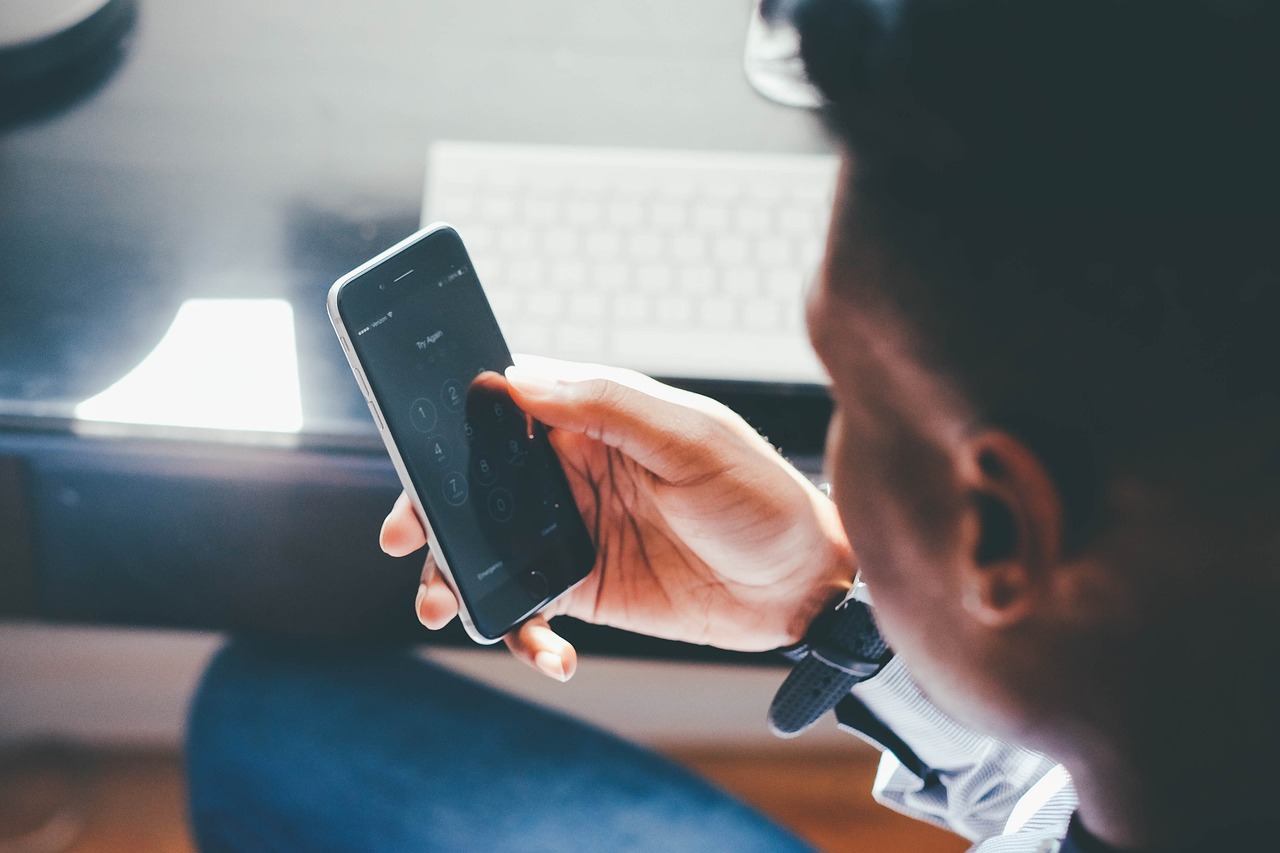
In our hyper-connected world, where social media is just a click away, the idea of a digital detox might sound like a fantasy. However, stepping back from the constant barrage of notifications and updates can be a game-changer for your mental health. Think of it as a breath of fresh air for your mind—a chance to disconnect and recharge. But how do you actually embark on this detox journey? Let’s dive into some practical techniques that can help you reclaim your peace.
First and foremost, it’s essential to recognize that a digital detox doesn’t have to mean completely cutting off all social media. Instead, it’s about finding a balance that works for you. One effective technique is to schedule specific times for social media use. By allocating just 30 minutes a day to check your accounts, you can avoid mindless scrolling that often leads to anxiety. You might even find that this structured approach allows you to enjoy your online interactions without feeling overwhelmed.
Another technique that many find beneficial is the “no phone zone” concept. Designate certain areas of your home, like your bedroom or dining room, as phone-free spaces. This simple act can help you create a mental barrier between your online life and your personal space, allowing you to be more present with yourself and your loved ones. Imagine enjoying a meal without the distraction of buzzing notifications—sounds refreshing, right?
For those who feel particularly attached to their devices, consider implementing a digital sunset. This means turning off your devices an hour before bedtime. The blue light emitted by screens can interfere with your sleep, and scrolling through social media right before bed can lead to racing thoughts. Instead, use this time to unwind with a good book or practice relaxation techniques. Your mind will thank you in the morning!
Finally, if you’re looking for a more drastic approach, you might try a full social media hiatus. This could range from a weekend break to an entire month without logging in. During this time, engage in activities that bring you joy—whether it’s hiking, painting, or simply enjoying a cup of coffee without the urge to document it online. Keep a journal to reflect on your feelings throughout this period; you may be surprised at how much clarity you gain when you step away from the digital noise.
In conclusion, a digital detox can be a powerful tool in managing anxiety related to social media. By implementing these techniques, you can foster a healthier relationship with technology and prioritize your mental well-being. Remember, it’s not about completely eliminating social media from your life but rather about finding a balance that allows you to thrive.
- What is a digital detox? A digital detox is a period during which a person refrains from using electronic devices, particularly smartphones and social media, to reduce stress and improve mental well-being.
- How long should a digital detox last? The duration can vary based on individual needs. Some may benefit from a weekend detox, while others might choose to take a month off.
- Will I miss out on important updates during a detox? It’s possible, but often, the benefits of reduced anxiety and improved mental clarity outweigh the fear of missing out.
- What activities can I do instead of using social media? Engage in hobbies you love, spend time with friends and family, read books, or explore nature.

In a world where social media is omnipresent, practicing mindfulness can be a game-changer for those struggling with anxiety. Mindfulness, at its core, is about being present and fully engaged with the moment, without judgment. When applied to social media use, this practice can help individuals navigate the often overwhelming digital landscape with a sense of calm and clarity. Imagine walking through a bustling marketplace, filled with vibrant sounds and sights; if you're not paying attention, you might miss the beauty around you. Similarly, in the digital realm, being mindful allows you to appreciate the content you consume rather than getting lost in a sea of distractions.
One of the first steps in integrating mindfulness into your social media habits is to become aware of how these platforms affect your emotions. Do you find yourself scrolling endlessly, feeling a knot of anxiety in your stomach? This awareness is the first step toward change. By recognizing these feelings, you can begin to set intentions for your social media use. For instance, instead of mindlessly scrolling, you might decide to engage with content that uplifts you or connects you with friends and family. This conscious choice can transform your online experience from a source of anxiety to one of joy.
Additionally, consider the practice of digital mindfulness, which involves setting specific times for checking social media, rather than allowing it to intrude upon your day. You might find it helpful to create a schedule that includes dedicated time for social media, balanced with offline activities. This way, you can enjoy the benefits of staying connected without letting it dominate your life. Remember, it's about quality, not quantity. Engaging deeply with a few meaningful posts can be far more rewarding than skimming through countless updates.
Another effective mindfulness technique is to practice gratitude while using social media. Take a moment to appreciate the connections you have and the positive content that inspires you. You could even keep a gratitude journal where you jot down a few things you are thankful for after your social media sessions. This practice shifts your focus from what you lack—often amplified by social comparison—to what you have, fostering a sense of fulfillment and reducing anxiety.
Incorporating mindfulness into your social media experience doesn't have to be complicated. Here are a few tips to get started:
- Limit Notifications: Turn off non-essential notifications to minimize distractions and interruptions.
- Practice Deep Breathing: Before you log on, take a few deep breaths to center yourself and set a positive intention for your time online.
- Engage Authentically: Focus on meaningful interactions rather than superficial likes or shares.
By embracing mindfulness, you can create a healthier relationship with social media, one that promotes mental well-being rather than anxiety. This practice empowers you to take control of your online experience, ensuring that it serves you instead of the other way around. So, the next time you log into your favorite platform, ask yourself: Am I engaging mindfully, or am I just going through the motions? The answers may surprise you, leading to a more fulfilling and less anxious online experience.
Q1: How can mindfulness help reduce anxiety related to social media?
A1: Mindfulness helps individuals become aware of their emotions and reactions while using social media, allowing them to make conscious choices and engage positively, reducing feelings of anxiety.
Q2: What are some simple mindfulness techniques for social media use?
A2: Techniques include setting specific times for checking social media, practicing gratitude, limiting notifications, and engaging authentically with content.
Q3: Can a digital detox be part of a mindfulness practice?
A3: Absolutely! Taking breaks from social media can enhance mindfulness by allowing you to reconnect with the real world and reflect on your online habits.
Frequently Asked Questions
- How does social media contribute to anxiety?
Social media can amplify feelings of anxiety through constant exposure to curated lives, leading to unhealthy comparisons and the fear of missing out (FOMO). Users may feel pressured to present a perfect image, which can heighten stress and feelings of inadequacy.
- What is FOMO, and how does it affect mental health?
FOMO, or the fear of missing out, is the anxiety that arises when individuals feel they are missing social events or experiences that others are enjoying. This can lead to feelings of isolation and inadequacy, negatively impacting overall mental well-being.
- Can cyberbullying lead to anxiety?
Absolutely! Cyberbullying can have severe emotional repercussions, contributing to anxiety and depression. Victims may feel trapped and unable to escape the harassment, leading to heightened stress and mental health issues.
- What are some effective strategies for managing social media anxiety?
To manage social media anxiety, consider setting clear boundaries around your usage, taking regular digital detoxes, and incorporating mindfulness practices. These strategies can promote a healthier relationship with social media and reduce anxiety levels.
- How can I set boundaries with social media?
Setting boundaries involves determining specific times for social media use, limiting exposure to negative content, and unfollowing accounts that trigger anxiety. This helps create a more positive online environment and protects your mental health.
- What are digital detox techniques?
Digital detox techniques involve taking breaks from social media to recharge mentally. This could mean a complete hiatus or scheduled breaks throughout the day to engage in offline activities that bring joy and relaxation.
- How does mindfulness help with social media use?
Mindfulness encourages individuals to be present and aware of their thoughts and feelings. By applying mindfulness to social media use, you can better manage your reactions to online content, reducing anxiety and promoting a healthier interaction with digital platforms.


